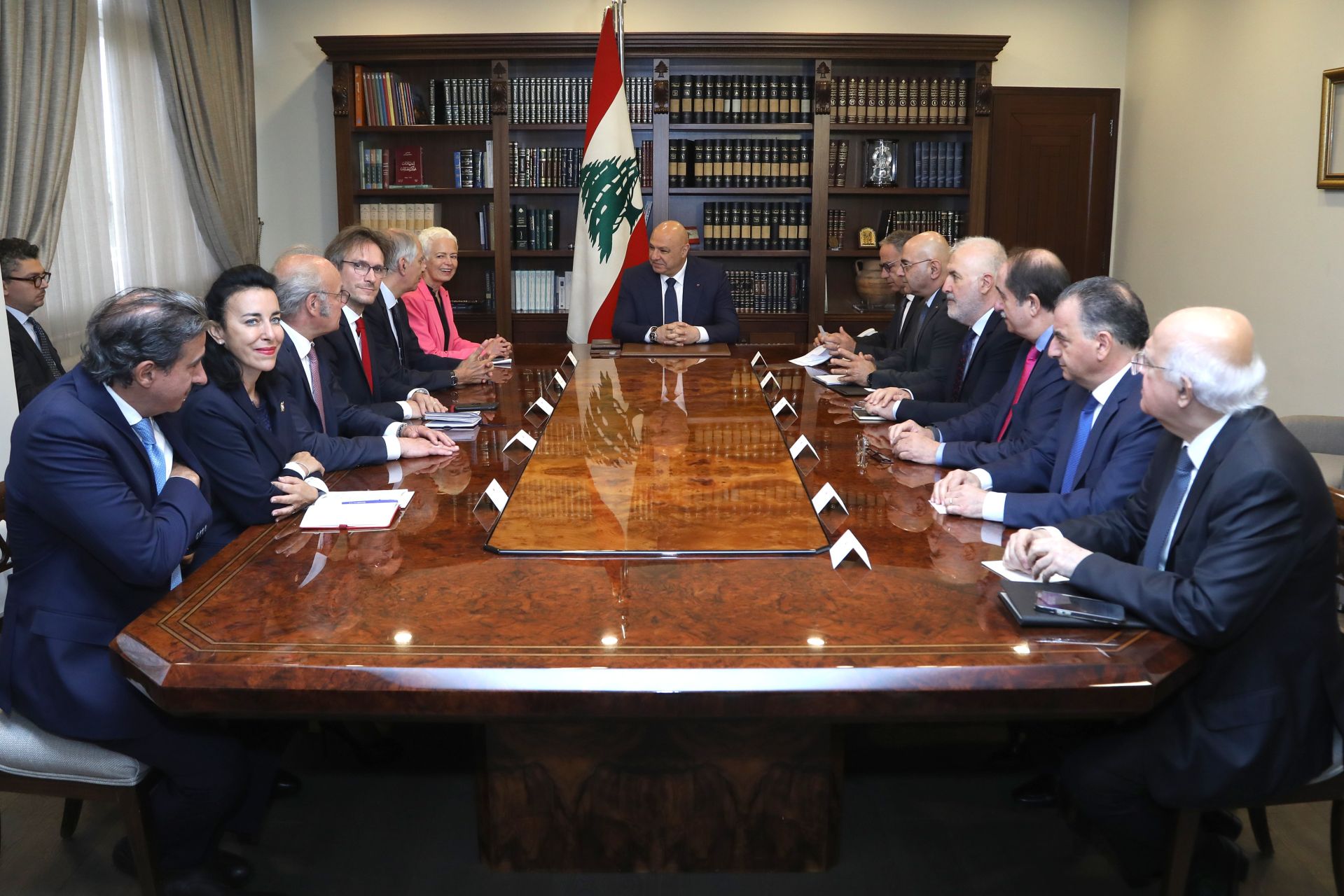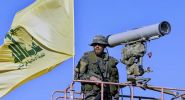
President Joseph Aoun said on Tuesday that the deployment of the Lebanese Army in South Lebanon remains hindered by the continued Israeli occupation of five strategic border hills, the detention of Lebanese prisoners and ongoing Israeli attacks.
During a meeting at Baabda Palace with a delegation from the French Parliament, attended by French Ambassador to Beirut Hervé Magro, the president called on the international community, especially the United States and France, as guarantors of the ceasefire agreement, to “exert pressure” on Israel to fully withdraw from the remaining points where it maintains a presence at the border.
“Lebanon has implemented the ceasefire agreement in every detail,” Aoun stated, noting that the Lebanese Army has deployed across more than 85% of the area south of the Litani River, in close coordination with the United Nations Interim Force in Lebanon (UNIFIL).
He reaffirmed Lebanon’s commitment to UNIFIL’s presence in supporting the army's efforts to maintain stability along the internationally recognized borders, while praising the “central role” played by France.
Aoun also highlighted other national priorities, including the resumption of offshore gas exploration off Lebanon’s southern coast, underlining the importance of the French company TotalEnergies in this effort.
The president thanked his French counterpart Emmanuel Macron for his continued support for Lebanon, noting that they remain in regular contact. He emphasized that France stands ready to support Lebanon in the security, political and economic spheres.
Ambassador Magro, for his part, announced that Macron’s special envoy, Jean-Yves Le Drian, is expected to visit Beirut following the Eid al-Adha holiday to continue discussions on reforms and reconstruction.
Members of the French delegation, representing various political parties, welcomed Aoun’s election, calling it a sign of hope for Lebanon. “The reforms implemented so far demonstrate a serious approach to recovery and revitalization,” they said.
They also reaffirmed their commitment to Lebanon’s sovereignty, unity and independence, and stressed the importance of continued French support at the outset of this new presidential term.
Later, the delegation met with Prime Minister Nawaf Salam, at the Serail.
Following the meeting, Deputy Brigitte Klinkert said the purpose of the visit was “to express our support for the government and the Prime Minister in the work they are doing, particularly the reforms they are putting forward.”
“We are here to highlight the importance of cooperation and friendship with Lebanon, and to reaffirm our support for Prime Minister Salam’s efforts to promote the country’s sovereignty and prosperity — a nation we care deeply about.”
She added that the discussion also addressed the situation in southern Lebanon, including the Lebanese army’s efforts to strengthen its deployment, the issue of Israel’s presence at five strategic border points, and the broader challenges of reconstruction.



Comments